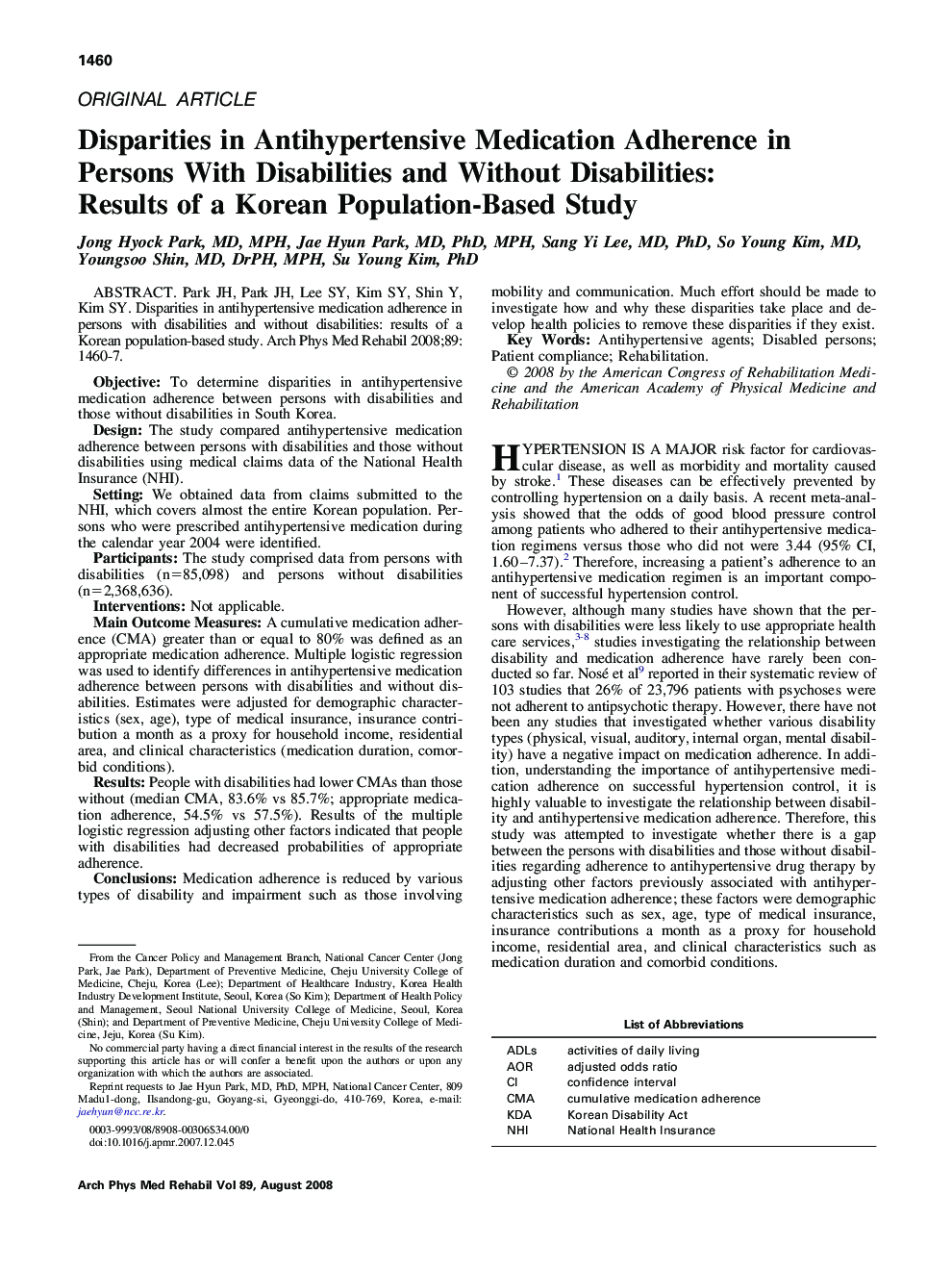| کد مقاله | کد نشریه | سال انتشار | مقاله انگلیسی | نسخه تمام متن |
|---|---|---|---|---|
| 3451459 | 1595776 | 2008 | 8 صفحه PDF | دانلود رایگان |

Park JH, Park JH, Lee SY, Kim SY, Shin Y, Kim SY. Disparities in antihypertensive medication adherence in persons with disabilities and without disabilities: results of a Korean population-based study.ObjectiveTo determine disparities in antihypertensive medication adherence between persons with disabilities and those without disabilities in South Korea.DesignThe study compared antihypertensive medication adherence between persons with disabilities and those without disabilities using medical claims data of the National Health Insurance (NHI).SettingWe obtained data from claims submitted to the NHI, which covers almost the entire Korean population. Persons who were prescribed antihypertensive medication during the calendar year 2004 were identified.ParticipantsThe study comprised data from persons with disabilities (n=85,098) and persons without disabilities (n=2,368,636).InterventionsNot applicable.Main Outcome MeasuresA cumulative medication adherence (CMA) greater than or equal to 80% was defined as an appropriate medication adherence. Multiple logistic regression was used to identify differences in antihypertensive medication adherence between persons with disabilities and without disabilities. Estimates were adjusted for demographic characteristics (sex, age), type of medical insurance, insurance contribution a month as a proxy for household income, residential area, and clinical characteristics (medication duration, comorbid conditions).ResultsPeople with disabilities had lower CMAs than those without (median CMA, 83.6% vs 85.7%; appropriate medication adherence, 54.5% vs 57.5%). Results of the multiple logistic regression adjusting other factors indicated that people with disabilities had decreased probabilities of appropriate adherence.ConclusionsMedication adherence is reduced by various types of disability and impairment such as those involving mobility and communication. Much effort should be made to investigate how and why these disparities take place and develop health policies to remove these disparities if they exist.
Journal: Archives of Physical Medicine and Rehabilitation - Volume 89, Issue 8, August 2008, Pages 1460–1467